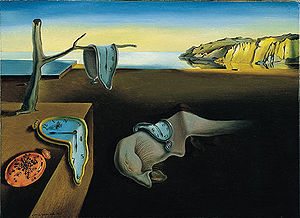 Following the 2008 discovery in China of melamine-laced milk – an event that left six babies dead, 300,000 sickened, and over 50,000 hospitalized — the Chinese government ordered all contaminated products to be burned or buried. The government was not directly involved in the destruction, however. That was left to those who had produced and distributed the tainted products.
Following the 2008 discovery in China of melamine-laced milk – an event that left six babies dead, 300,000 sickened, and over 50,000 hospitalized — the Chinese government ordered all contaminated products to be burned or buried. The government was not directly involved in the destruction, however. That was left to those who had produced and distributed the tainted products.
Much of the contaminated milk was simply repackaged and shipped from the south (Guangdong province) to the northeastern part of the country. The government is aware of 170 tons of tainted milk powder, which were recalled earlier this week. The government also knows of another 100 tons that can’t be located. Melamine-tainted candy is still being sold to children.
To make more money
Paul Midler is an expert on Chinese manufacturing and the author of Poorly Made in China. In his opinion, the melamine problem can be blamed on a “pathological focus on short-term profitability” among Chinese manufacturers:
Accidents can happen in almost any production process, but melamine did not coincidentally make its way into milk. China’s obsession with thrift is a virtue often carried to a fault. Police have noted that the current melamine scandal was made possible by the many tons of melamine that remained from the 2008 scandal. Some distributors chose to repackage the tainted powder and put it on store shelves. They couldn’t stand the thought of throwing away so much milk powder, even if it was dangerously contaminated, and even if it meant running the risk of being punished for it.
In his comments, which appeared in The Wall Street Journal, Midler compares China’s melamine problem with the current recall of Toyotas for sticky accelerator pedals.
Although the [Japanese] automotive recalls currently underway are extensive, design errors and electronic malfunctions are in a different league from China’s instances of willful product manipulation, especially when that manipulation has involved artful efforts at circumventing third-party controls. In China, operators display an incredible willingness to place public safety at risk in exchange for only the smallest gains in profit. …
The melamine scandal is by far the most disturbing of all the quality crises China has faced in recent years. It was not just the amount of suffering endured, but the fact that the contamination was an open secret shared by possibly hundreds of individuals at dozens of companies. While some people involved in the 2008 scandal might have been able to claim that they didn’t know melamine could do so much harm, those caught using melamine more recently cannot possibly plead ignorance.
One of the melamine perpetrators who was arrested in 2008 candidly admitted his motivation: “To make more money.” Greed, of course, has been a source of harm all over the world throughout history. As nations become more economically and socially developed, greed becomes more subtle, sophisticated, and insidious. In the US, we currently suffer from the consequences of highly leveraged financial derivatives.
China may have individuals who harm others because they want to “make more money,” but then the US has Bernie Madoff, who surely represents greed and harm at the most primitive level. As I mentioned recently in another post, we shouldn’t be too quick to throw the first stone at China. We’ve been there and done that ourselves, both in the distant and more recent past.
Related posts:
Melamine, cadmium, and Heidi Montag
To make more money
Melamine update
Eat fish? Don’t read this
Paging Dr. Frankenstein
Sources:
(Hover over book titles for more info. Links will open in a separate window or tab.)
Paul Midler, Why China Keeps Poisoning the Milk, The Wall Street Journal, February 10, 2010
Cara Anna, China declares new national food-safety campaign, The Associated Press, February 10, 2010
Daring few tells much, China Daily, February 6, 2010
Melamine candy made by Zhangzhou-based Nanfang Food ‘still on market,’ What’s On Xiamen, February 7, 2010
Paul Midler, Poorly Made in China: An Insider’s Account of the Tactics Behind China’s Production Game


Sorry, comments are closed for this post.